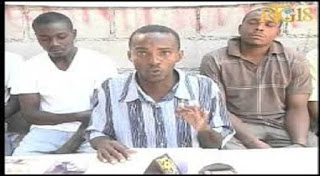Bougòy Chèf Bandi Gran Ravin Nan Bay Detay Sou Disparisyon Jounalis Vladjimir Legagneur
Bougòy Chèf Bandi Gran Ravin Nan Bay Detay Sou Disparisyon Jounalis Vladjimir Legagneur
Voir aussi:
--Promoted content
Voir aussi:
--Promoted content
Personalized Cancer Vaccines Show Promise for Mesothelioma
What Are Personalized Cancer Vaccines?
Personalized cancer vaccines are a type of immunotherapy made to be totally unique for each individual patient. As researchers continued to study different types of immunotherapy, one reason for why this new treatment doesn’t work for everyone became glaringly apparent. Even patients with the same type of cancer have tumors with a unique molecular makeup, specifically the antigens the cancer cells host.
Antigens are molecules that can induce an immune system response, as they stimulate the body to create antibodies to fight this foreign toxin off. The trouble lies in some tumor cells that sport the same antigen as normal cells, which the immune system understands not to attack. This has led to difficulties in some past clinical trials with cancer vaccines, where the treatment wasn’t truly personalized.
Since then, researchers have focused on the new approach of creating personalized cancer vaccines. For this treatment, doctors biopsy an individual patient’s tumor to sequence the DNA and compare these sequences to that of a normal, healthy cell. Studying antigens on an individual level is key, as doctors note it’s highly unlikely that these will be the same among any two cancer patients. The differences between the normal and cancer cells, mutations, can be few or even up to 1,000.
After recognizing these mutations, researchers can then identify which mutated genes make antigens that can then be targeted by a cancer vaccine. It’s estimated that about 3 or 5 out of every 100 mutations makes an antigen. Because these antigens (sometimes labeled neoantigens) aren’t made by healthy cells, the doctors can then synthesize the tumors’ antigens into a vaccine with adjuvants which will enhance the immune response. Researchers have noted that it only takes one of these neoantigens to make the vaccine, but experts note that 20 antigens can maximize the effects and make it more likely the vaccine is successful.


Commentaires
Enregistrer un commentaire